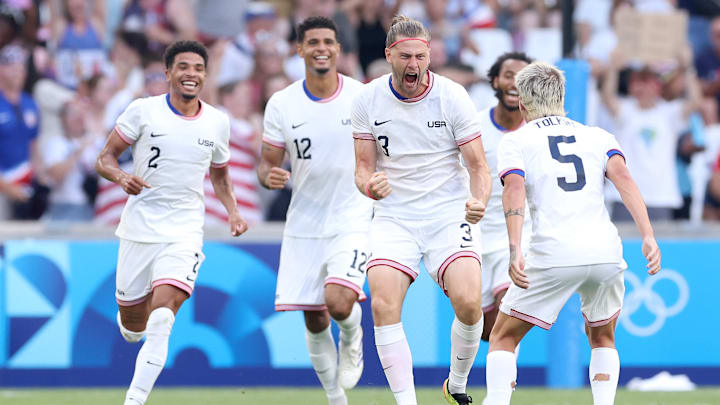American fans were hoping for a glorious summer, where U.S. soccer would finally showcase its strength and competitiveness on the global stage. Instead, what we saw was a mediocre performance that only reinforced the old belief that American men can’t play ball. And it’s hard to argue against that perception after the recent failures in the Paris Olympics and the Copa América.
The U-23s, poor guys, never really stood a chance. From the beginning, the squad looked more like a second-division team than a national team worthy of competing in major tournaments. It’s no surprise that no one is truly shocked or outraged by the 4-0 defeat to Morocco in the Olympic quarterfinals. It was expected. And that’s what hurts the most – the predictability of the defeat.
Follow MLS Multiplex on X (Twitter).
The early elimination in the Copa América didn’t help improve this image either. With only three points in three games, the U.S. said goodbye to the tournament in shame. They were outplayed by an efficient Uruguay and a determined Panama. This lackluster performance only reinforces the narrative that men’s soccer in the U.S. is still in its infancy, far behind where it could and should be.
It was supposed to be the beginning of a new era, a new phase where U.S. soccer would stop being a laughingstock among more traditional fans. But what we saw was a huge anticlimax. And seeing these fans laughing, saying “I told you so,” is disheartening. This summer not only failed to elevate U.S. soccer but also solidified the perception that the men’s team is, at best, mediocre.
Investments are being made, stadiums are full, but the results simply aren’t coming. And meanwhile, the gap between the U.S. and the world’s soccer powerhouses only widens. This summer, which was supposed to be a milestone of progress, turned into a glaring proof that we are still far from the ideal.
Let’s be honest, if soccer were a mountain to be climbed, the U.S. is still at the base camp, looking up at the peak and wondering how to get there. And it’s not just about blaming the players or coaches. It’s an entire system that needs to be rethought. From player development to league structure, to the mindset with which the sport is treated in the country.
The U-23 failure in the Olympics is a clear reflection of this. Young players, many of whom should be future stars, were unprepared for international challenges. And it’s not their fault. It’s a symptom of a larger problem, a system that isn’t working as it should. We’re not producing elite players, just generating average athletes.
The Copa América only reinforced this reality. When you see teams like Uruguay and Panama outplaying the U.S. with relative ease, it’s clear that something is very wrong. We’re not talking about losing to Brazil or Argentina, but to teams that, on paper, should be on the same level as the U.S. That’s worrisome.
This summer was supposed to be the kickoff for a new era but turned into a confirmation that we’re treading water. And that’s unacceptable for a country with the resources and infrastructure that the U.S. has. It’s time to stop talking about potential and start delivering results.
For fans of traditional sports, this is just another piece of evidence that soccer in the U.S. is a joke. It’s hard to defend… U.S. men’s soccer needs a revolution, not just empty promises.
And here we are, at the end of a summer that should have been memorable for the right reasons but will be remembered for the wrong ones. A missed opportunity, a setback at a time when we needed progress. It’s time to wake up and realize that if we really want to compete on the global stage, we need to change. And we need to change now.
Let’s see if this failure will be the necessary fuel for real change. Continuing like this is no longer an option.
